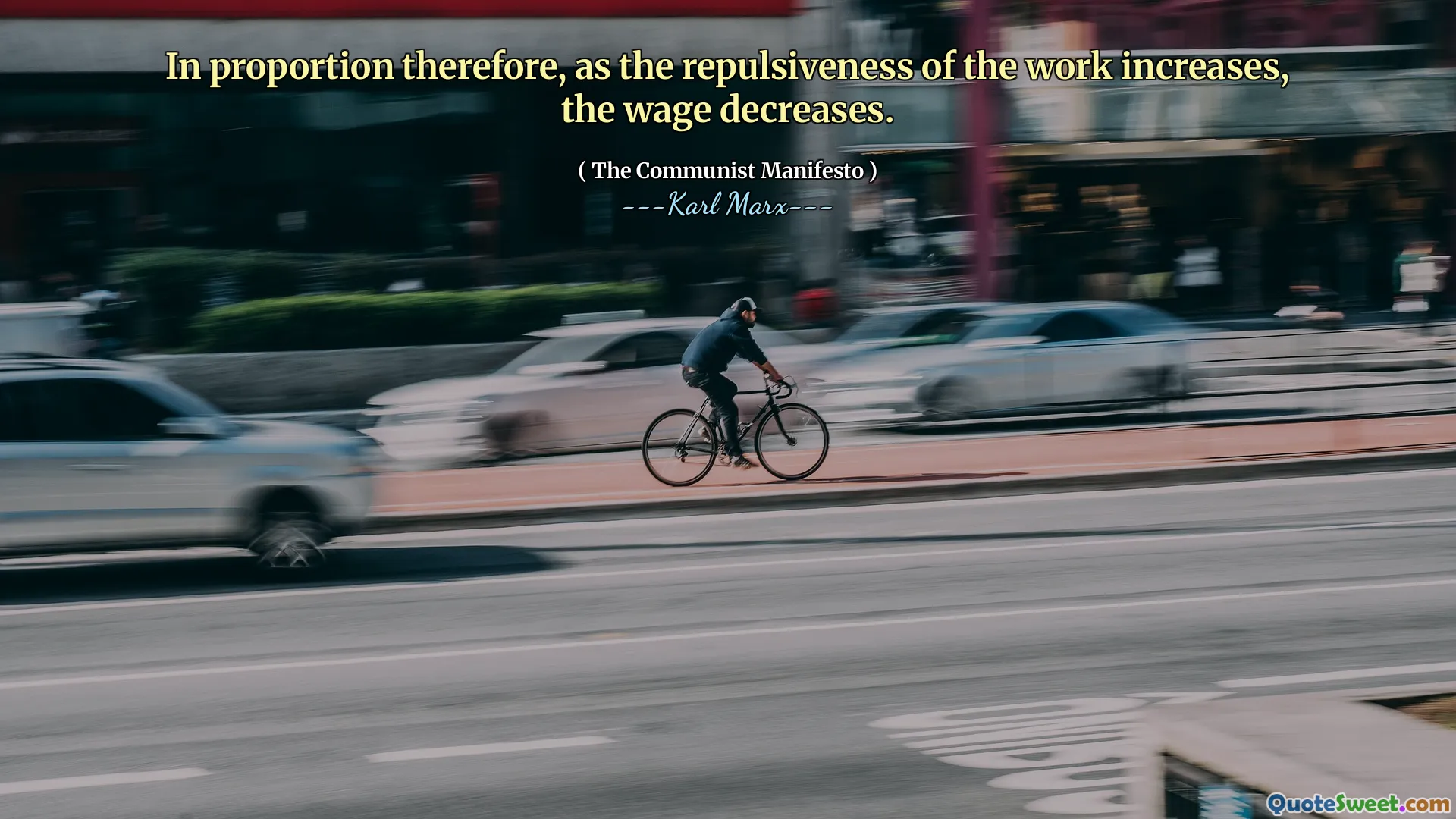
In proportion therefore, as the repulsiveness of the work increases, the wage decreases.
This quote by Karl Marx illuminates a fundamental aspect of the capitalist labor market, where the value of labor is closely tied to the desirability of the work involved. As the work becomes more unpleasant, hazardous, or morally detestable, workers are naturally less willing to undertake such tasks unless incentivized with higher compensation. However, Marx argues that the tendency in an unregulated market is for wage reductions in less desirable jobs, effectively making their labor less attractive and perpetuating a cycle where the less desirable work becomes increasingly burdensome and poorly paid. This observation highlights the economic disparity and social injustices that often accompany capitalist production. It points to a system where workers' wellbeing and moral considerations are subordinated to profit maximization. The more repulsive or laborious the work, the more it is undervalued, and the less appealing it becomes, which can contribute to labor exploitation and inequality. The quote also prompts reflection on the societal value assigned to different kinds of work, often based on how unpleasant they are, rather than their importance or necessity. This perspective encourages critical thought about labor rights, wages, and the ethical responsibilities of employers and society at large to ensure fair treatment and compensation for all types of work, regardless of their nature. It encapsulates the tension between labor's dignity and economic valuation—the core discussions that continue to resonate within labor economics and social justice issues today.


